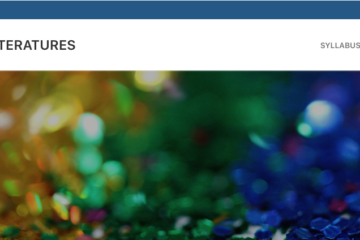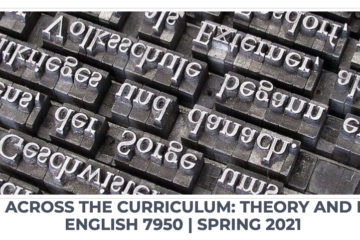English 6625 (Teaching Composition: Theory and Practice) offers graduate students a background in the major theories and pedagogies that continue to shape best practices in the teaching of writing at the college level.
Can you remember exactly when you learned to write? or how? Or can you remember the major moments in your personal writing development? My guess is that you cannot. You can probably locate teachers that stand out for you, or even specific writing assignments or experiences that you particularly enjoyed or felt proud of. Most likely, you can also think of negative experiences that continue to haunt you. But you’ve probably never been asked to think about how you learned to write. You just did. Sometime. Somewhere. You couldn’t; then you could. And very likely, you now feel fairly confident in your abilities as a writer.
Some suggest that “writing” involves such a complex set of abilities, temperaments, and contexts that we couldn’t possibly “teach” it; others think we can reduce “writing” to a series of activities that can easily be shared with students. Regardless, English 6625 focuses on this complex and mysterious concept of “teaching writing.” And quite regardless of what you might hear from college professors about how college students, especially first-year students, “can’t write,” that’s simply not true. It is virtually impossible for a fully illiterate student to get into a major college today. What that professor usually means is, “This student doesn’t write like I think an X-major should write.” The professor is thinking about specific genre and discourse conventions which, of course, can be taught on some level.
In this course, we’ll explore some of the major theoretical concepts that have sought to explain what writing is, how it is done, how we learn to do it or don’t, and what any of this nebulous business might look like in a classroom setting.



0 Comments